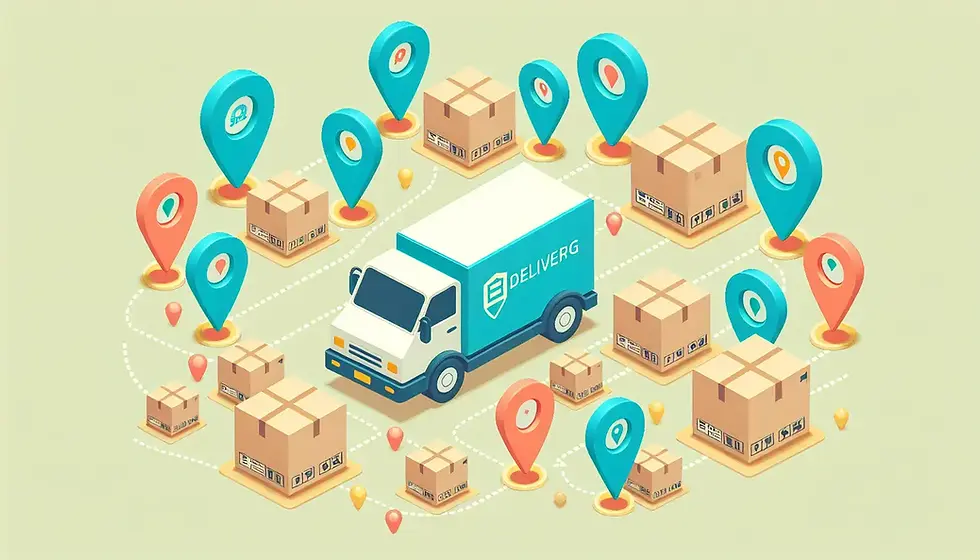How to Choose the Best Fulfillment Partner for Your Business
- Oct 2, 2025
- 3 min read
Choosing the right fulfillment partner can make or break your business operations. It's crucial to find a partner who can meet your specific needs and help you deliver the best experience to your customers. In this guide, we'll walk you through the process of finding the best fulfillment partner for your business.

Understanding Your Fulfillment Needs
Before you start looking for a fulfillment partner, it’s important to clearly understand your business's unique fulfillment needs. Consider factors like order volume, product types, and any special handling requirements your products might have.
Understanding your customer expectations is also crucial. Are your customers expecting two-day delivery, or will they be satisfied with a more prolonged shipping period? The geographical distribution of your customer base will influence where your stock needs to be stored and how quickly it can be delivered. Furthermore, think about whether your products require specific storage conditions—such as temperature control—that a potential fulfillment partner should accommodate.
Exploring Different Types of Fulfillment Services
Fulfillment services vary widely—from simple warehousing and pick-pack-ship operations to fully integrated solutions offering customer service and reverse logistics. Knowing the differences can help you choose the partner that offers exactly what you need.
Some businesses might benefit from a fulfillment partner providing end-to-end solutions, including branding and packaging customization, which can enhance your customer’s unboxing experience. Others might find value in a partner specializing in technologically advanced fulfillment solutions utilizing AI for inventory management, ensuring real-time stock updates and optimized picking processes.
Comparing Potential Fulfillment Partners
Once you know your needs, it's time to compare potential partners. Look at their history, reliability, scalability, technology, and geographical reach to ensure they align with your business objectives.
Conducting a thorough comparison can unveil nuances in service capabilities. For instance, a partner with a global reach might serve international expansion plans well, whereas a local firm might offer more personalized service for domestic operations. Consider the partner's use of technology: does their system integrate seamlessly with your current platform? Their ability to adapt to seasonal sales spikes—and how they manage such fluctuations—can also be pivotal when evaluating fulfillment scalability.
Moreover, consider visiting potential fulfillment centers. Seeing their operations firsthand can give you insights into their efficiency and working environment. It also provides an opportunity to speak with their team and learn about their company culture—elements that often translate into the customer experience they can offer your clients.
Evaluating Cost and Value Propositions
While cost is always a consideration, it shouldn’t be the only factor. Assess the value each fulfillment partner offers beyond mere pricing, including services, technology, and customer support.
Look into cost structures: do they have a pay-as-you-go model or flat rates? Understand how these align with your budget, but don’t overlook hidden fees like storage penalties and late shipping charges. A partner offering robust customer support services can greatly enhance your business's reliability and customer satisfaction, potentially offsetting higher expenditures.
Additionally, consider innovation as a value proposition. A partner leveraging advanced data analytics can provide valuable insights into customer preferences and predict future trends, enabling you to tailor your offerings accordingly. This kind of partnership can offer considerable long-term benefit, far exceeding initial cost considerations.
Checking Reviews and References
Checking reviews and speaking with current or past clients of a fulfillment provider can offer valuable insights into their operations and reliability.
Online reviews can reveal recurring issues and highlight aspects of the provider’s service that might not be apparent from their marketing materials. Look for patterns in reviews—consistencies in complaints such as delivery delays or poor customer service can be red flags. Talking to other businesses about their experiences can provide nuanced insights into how the provider operates under different circumstances, enabling a more holistic view of their capabilities.
Negotiating Terms and Setting Expectations
Once you've narrowed down your options, negotiate terms to ensure both parties have clear expectations regarding service levels, costs, and communication protocols.
An effective negotiation should aim at mutual benefit. Clarify aspects such as turnaround times for order processing, return handling procedures, and any penalties for not meeting predefined service levels. By setting explicit expectations upfront, you can foster a fruitful partnership and preempt potential conflicts that might arise from misunderstood commitments.
It’s also wise to cement your agreements in a legally binding contract that can be revisited as the business relationship evolves. Flexible terms that account for growth and unexpected changes in demand ensure that your fulfillment partner remains a valuable asset to your operation.
Making the Right Fulfillment Choice
Selecting the best fulfillment partner for your business is a strategic decision that requires careful consideration. By evaluating your specific needs, understanding the services offered by potential partners, and thoroughly assessing costs and reviews, you can make an informed decision that propels your business forward.



Comments